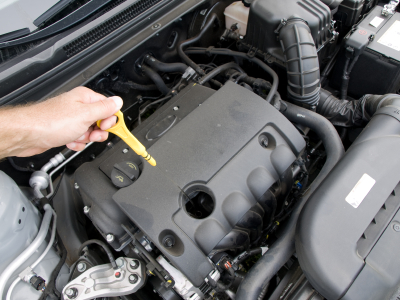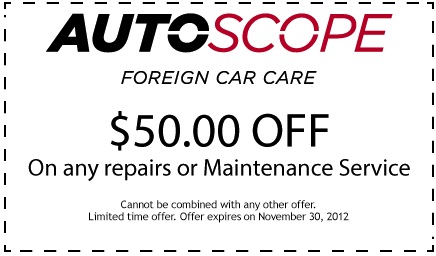You've driven your Audi for more than 3,000 miles since your last oil change. Maybe you’ve traveled 5,000 miles worth of road in your BMW or Mercedes. Is it time for another oil change? Or, can you squeeze out 1,000, 2,000 or even 10,000 more miles before heading to your mechanic?
Nerces Mavelian, owner of Dallas' Autoscope, an auto repair shop that specializes in personalized European car repair in the Dallas, Plano and Addison areas, says that there is no set rule on when the owners of European cars should schedule an oil change. But Mavelian—pointing out that vehicles are often the second costliest purchase, after a home, that consumers make—says that drivers who want to protect their engines should change their oil at least every 5,000 miles. They should never drive more than 7,000 miles without an oil change, he said.
 "Oil is asked to do a lot today," Mavelian said. "Drivers have never hurt their car's engine by getting an oil change too early. But many have damaged their engines by getting one too late."
"Oil is asked to do a lot today," Mavelian said. "Drivers have never hurt their car's engine by getting an oil change too early. But many have damaged their engines by getting one too late."
The manufacturers of European cars offer little guidance when it comes to oil changes. Some recommend that their owners schedule an oil change every 10,000 miles. Others say that drivers can go as long as 15,000 miles without one, Mavelian said.
It's a big change from the days when drivers just assumed that they needed an oil change every 3,000 miles.
Mavelian recommends that drivers look at oil changes logically. The engine oil in a BMW, for instance, doesn't just keep the rotating pieces of metal that make up an engine from grinding to a halt. Oil today performs many jobs.
For example, oil pulls heat away from the BMW's engine. It moves variable camshafts. It absorbs dirt, moisture and debris.
And it does all this while performing its main job of protecting that BMW engine.
It's not just mileage, then, that breaks down the properties of your engine oil. Because of this, oil might need replacing sooner than 10,000 or 15,000 miles.
"While the mileage might not have broken down the oil, what about the impact of its other jobs?" Mavelian said. "Has it absorbed moisture and become too thin to protect your engine? Has it absorbed too much fuel blow-by to properly apply pressure to needed components? Has it gotten so dirt-laden that it's leaving deposits of tar-like goo on everything inside the engine? All of that can seriously damage your vehicle’s engine," Mavelian said.
“People who keep their cars beautifully clean and detailed should care at least as much about their engines.”
Scheduling regular oil changes—at 3,000, 5,000 or some other mileage under the 10,000-mile mark—is one of the least expensive ways to take care of a European car, Mavelian said.

Mavelian reminds drivers that a European car is an investment and should be treated with care. An oil change comes with an added benefit: When mechanics are changing your vehicle's oil, they will also often inspect your entire car to make sure that it isn't suffering from any problems. Mechanics can then provide you with an estimate of the costs of addressing these issues before they turn into more costly problems.
"Simple, routine oil services are one of the most inexpensive ways to ensure that your investment has a healthy power plant under its hood," Mavelian said. "Determining who is 'right' about oil service intervals is almost impossible. But performing the service earlier than 10,000 or 15,000 miles will never damage anything on your prized investment."
Interested in learning more about the benefits of regular oil changes? Call Autoscope at 214-350-3050 or visit the company's website at www.autoscope.net.
Autoscope - Park Cities
6134 Denton Drive
Dallas, TX 75235 (MAP)
214-960-1016
Hours: Mon-Fri: 7:30 AM - 6:00 PM Sat: 9:00 AM - 3:00 PM Sun: Closed
www.autoscope.net